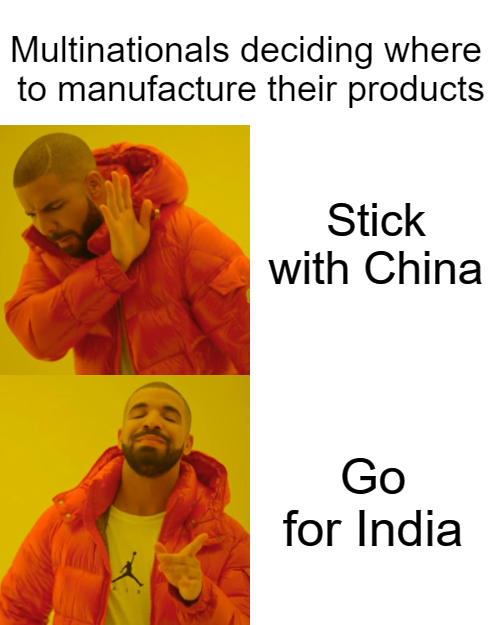Supply Shift

In Short: Apple is ramping up iPhone production in India, moving away from its heavy reliance on China amidst growing geopolitical tensions.

What’s going on?
Apple's production strategy is getting a major makeover! Last fiscal year, the tech giant doubled its iPhone assembly in India, hitting a whopping $14 billion worth of devices. Why the big shift? It’s largely a strategic pivot to reduce dependence on China, where Apple faces not only increased competition from brands like Huawei but also rising political and economic uncertainties.
This is a calculated move to tap into India’s growing tech manufacturing capabilities. Under Prime Minister Narendra Modi’s leadership, India has rolled out the red carpet for companies like Apple with attractive financial incentives. The result? Not only has Apple boosted its production, but it’s also spearheaded job creation, adding 150,000 direct jobs at its supplier facilities.
Key players in this new chapter include Foxconn and Pegatron, handling a significant chunk of the assembly process in India. Even Tata Group is getting in on the action, taking over an existing plant with plans to scale up further. This isn’t just about assembling more iPhones; it’s about integrating India deeper into the global tech fabric.
Why does it matter?
Apple's move to expand in India is more than just a shift in geography; it’s a strategic adaptation to the changing global economic landscape. By reducing its dependency on China, Apple not only mitigates risks associated with geopolitical tensions but also positions itself in a rapidly growing market with a burgeoning middle class eager for technology.

For countries like India, the influx of high-end manufacturing is a boon for economic growth and job creation, helping to elevate its status as a globally trusted manufacturing hub. The trend also indicates a strategic decoupling from China's manufacturing dominance, driven by desires for political safety, economic stability, and reduced supply chain vulnerabilities.
As more companies follow Apple’s lead, we might see a significant transformation in where and how technology products are manufactured globally. This is not just about diversification; it's about creating a more resilient and dynamic global supply chain that can better withstand the challenges of a rapidly changing world.
⚖️ How does this impact Law Firms?
Join ZipLaw+ to continue reading






